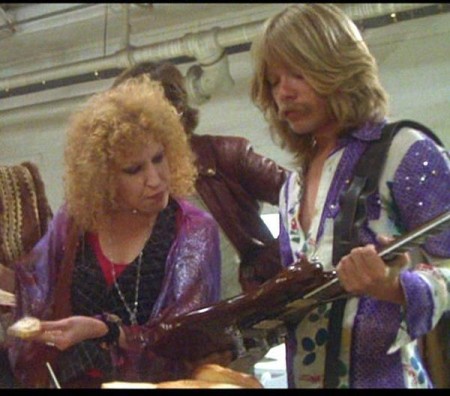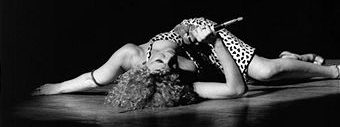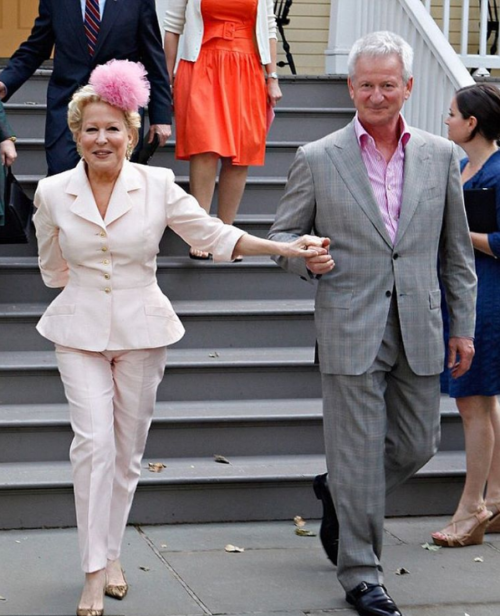New York Times
March 28, 1993
FILM
FILM; As the Academy Hails Women, Women Talk Back
By CARYN JAMES
Whether the Oscar ceremony turns out to be hideous or sedate, the Academy of Motion Picture Arts and Sciences has already done one shameless and hilarious thing: choosing the theme “Oscar Celebrates Women and the Movies” for a year in which there were notoriously few good roles for women. (Talk about overcompensating!) Still, the theme draws attention to a problem so acute that even top actresses have become outspoken about it.
When Emma Thompson accepted the Golden Globe for her performance in “Howards End,” she ended her speech by saying, “If I have a wish left in the world, it is just for the creation of more great female roles.” It was a generous, enlightening thank-you — if she thinks there’s a problem, there must be one. And it suggested that a valuable perspective on the issue would come from women able to choose the best available roles.
The six women interviewed here were asked to talk about the roles they choose and The ones they turn down. And though they agreed that the scarcity of good female roles is a serious problem, not just media hype, their idealism was tempered by hard-nosed business sense. They were also asked whether the idea of separate Oscar categories for men and women makes sense. We’re talking about movies, after all, not football; girls and boys can play this game together.
Here is a portion of what they had to say. Alfre Woodard Nominated as best supporting actress for “Cross Creek” in 1984; currently in “Passion Fish”
“I turn down things a lot, because I get asked to be a moral prop that makes the writers or film makers feel better about themselves. They see women and people of color as one-dimensional, which makes for very boring cinema. Films have been the fantasy life of our culture, and in our fantasies we don’t have to deal with these women and with blacks and yellows.
“I am very realistic. I know that there are many narrow-minded impulses that drive this business. Everybody gets used. But when using gets down, you know who’s going to get used. People of color. White men get used, too, but they get paid.”
On the difficulty of finding a good role:
“It’s so hard that strangers on the street, secretaries in car pools, John and Jane Doe come up to me, and the first thing they say about ‘Passion Fish’ is, ‘I love those women!’ They talk about John Sayles’s writing first, and then they say, ‘I thought you were good.’ They realize they haven’t been seeing real women before.”
On separate categories for actors and actresses:
“I identify myself as an actor, because I feel like you don’t go to the doc tress , you go to the doctor; it doesn’t matter what the gender is. I think actresses worry about eyelashes and cellulite, and women who are actors worry about the characters we are playing. A separate category is another way of making us a special-interest group.” Sigourney Weaver Nominated as best actress for “Aliens” in 1987 and for “Gorillas in the Mist” in 1989; nominated as best supporting actress for “Working Girl,” also in 1989
“There was just a story in Variety about actors whose movies have the biggest opening weekends, and I came in third behind Eddie Murphy and Arnold Schwarzenegger. The article talked a lot about Murphy and Schwarzenegger and dismissed me in one paragraph as someone who does a lot of special-effects films — as if Arnold does not! Part of the problem is that studios think of movies as a male vehicle, and when you say ‘female vehicle’ it already has a negative connotation. If you’re a woman, you’re an actor who has done well in a special-effects picture. But if Arnold had done well in it, it would have been an Arnold Schwarzenegger movie.
“In ‘Aliens’ it was such a relief — no one ever said during the whole three pictures, ‘Oh, that’s not very sympathetic.’ Usually, even if you’re playing a complex woman, they try to minimize your strongest scenes, which tends to make women more conventional. This panic sets in that the audience might not like you, which makes the woman smaller and less interesting.
“There are very few wonderful comedy scripts because women really aren’t allowed to be irreverent. Bill Murray gets to be irreverent and cranky, but in a woman that would be considered unfeminine.
“I actually think maybe things are improving a bit. It’s just dumb hope, and the sense that there are independent films this year like ‘Enchanted April’ that are different and interesting for women.” Emma Thompson Nominated this year as best actress for “Howards End”
“One of the things we’re suffering the consequences of is that the 80’s were a fairly repugnant age morally. It was a period of backlash — in my country against things like the welfare state as well as feminism.
“As you look at the kinds of roles available to women in the late 80’s and 90’s, they are fantastically curtailed. We’re coming in body parts; we don’t even come whole anymore, right down to films like ‘Jennifer 8’ and ‘Boxing Helena.’ The victimization has become more and more specific.
“It is a very complicated issue because it’s so tied up with other social advances. As women have taken more power, there’s some wish to punish us, and that has become clear in this art form. For women in film it’s worse than it has ever been, except in the 50’s, when Doris Day-type roles said, ‘It’s all lovely,’ a completely false image.
“I so rarely find roles that bear any relation to women I know. Maybe I travel in the wrong circles, but I don’t really know any bimbos.”
On separate Oscar categories:
“It makes it more fun because there’s one more award. And in a lot of films — at least that’s the way it ought to be — a performer from each sex gives his or her version of events. There’s a male and female partner in each film.” Judy Davis Nominated this year as best supporting actress for “Husbands and Wives” and in 1985 as best actress for “A Passage to India”
“I read three scripts in the past year that were all some variation of a monster: a sexual predator, a hostile mother, a murderous ex-wife. I wouldn’t say male roles are free of stereotypes; they’re not. But there are only so many wives an audience can see before they get bored and irritated.
“Maybe this is a phase that’s drawing to a conclusion, the period of big action films. It probably won’t change, though, until audience tastes change. And what makes money is often determined by how much money studios put into marketing. If they have a ‘women’s film,’ they’re already a little suspicious and may not put as much behind it. There has been a policy of trusting the maleness of films, and if the studios broadened their thinking, things might change. ‘Sister Act’ was one of the highest grossing films of the year, and it was all women.”
On whether the independent character she played in her breakthrough film, “My Brilliant Career,” made it easier to get other strong roles:
“In a way it’s been easier, but there was also a range of parts that people thought I wasn’t right for — you know, dolly parts and some wife parts.
“The word ‘strong’ is one I’m uncomfortable with. I don’t know that any reasonable person would say being outspoken is being strong. It has become very simplistic. Why divide us into: you’re strong if you talk, and if you’re pretty you’re probably dumb, and if you’re ugly you’re intelligent. They don’t do that to men.” Annette Bening Nominated as best supporting actress for “The Grifters” in 1991
“The question is: where is the responsibility? Especially for women who have the ability to develop material, a lot of the responsibility is with us. When you get to a point where you’re offered good roles, it’s easy to get spoiled, to expect these things to fall into your lap. They don’t.
“The battle women are fighting is that the biggest part of the industry is in male action movies. It’s harder to find those gems for women because they often don’t appear to be overtly commercial.
“Another thing that comes into play is leading roles versus supporting roles. I come from the theater, and something wonderful about repertory companies is that you’re not always carrying the play. Artistically, taking a supporting role can be a healthy thing. In movies it’s difficult for the really strong women, and sometimes the men, to do that.
Bette Midler:
The way the industry is constructed, once you’re in a position where you get to be the star, you’re compromising yourself when you take a smaller part. Sometimes I’ll be offered something smaller, and my business people will say, ‘I don’t think that’s a good idea.’ And some of the great women’s roles are smaller. There you are with this impossible standard that can immobilize you.” Bette Midler Nominated as best actress for “For the Boys” last year and for “The Rose” in 1980
“The business is run by men, and they’re basically interested in their own species, and they’re not so interested in women belonging to the human race. It’s not that there’s a conspiracy. There’s a rising mediocrity, and women are the victims of it.
“The industry is an ecosystem that’s sick. I made ‘Down and Out in Beverly Hills’ eight or nine years ago, and since then I’ve read eight or nine scripts just like it. We need a broader menu.”
On separate Oscar categories:
“I’m all for separate categories or no woman would ever win an Oscar. Come on!”
Photos: Alfre Woodard — “White men get used, too, but they get paid.” (Bob Marshak/Miramax); Emma Thompson — “For women . . . it’s worse than it has ever been.” (Agence France-Presse); Judy Davis — “There are only so many wives an audience can see.” (Hallmark Hall of Fame/CBS); Sigourney Weaver — “Studios think of movies as a male vehicle.” (Fred R. Conrad/The New York Times)(pg. 15); Annette Bening — “The battle women are fighting is that the biggest part of the industry is in male action movies.” (Theo Westenberger/Paramount Pictures)(pg. 23)








